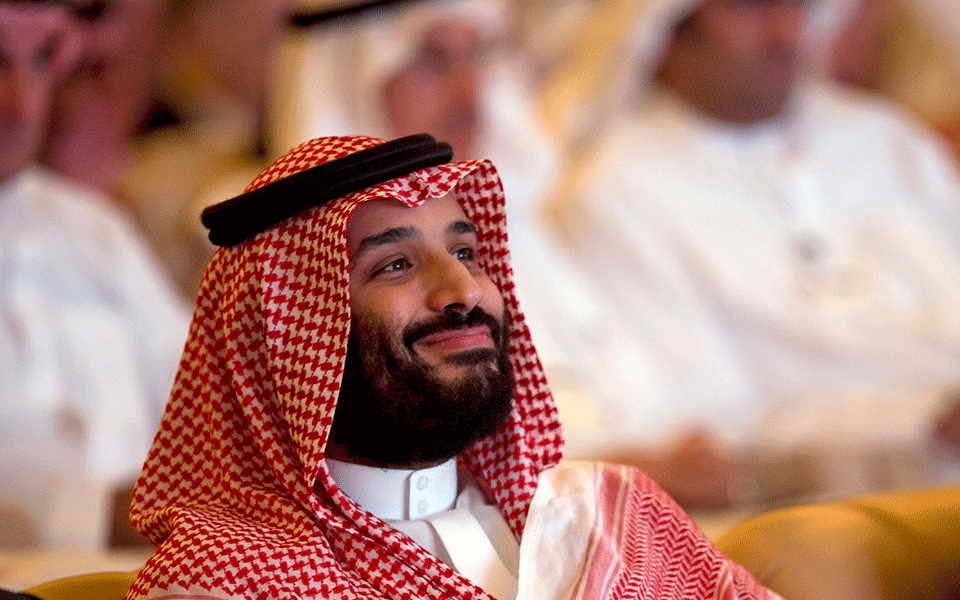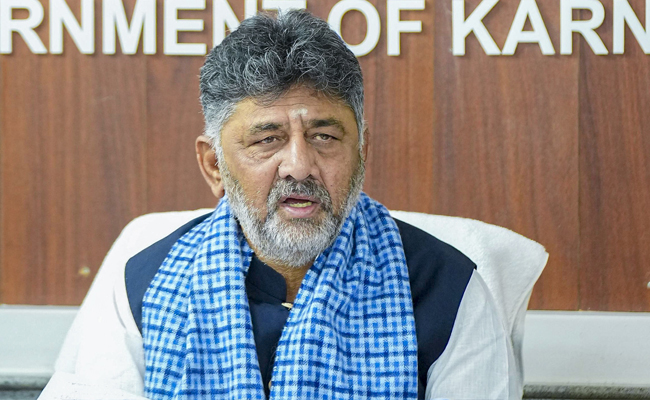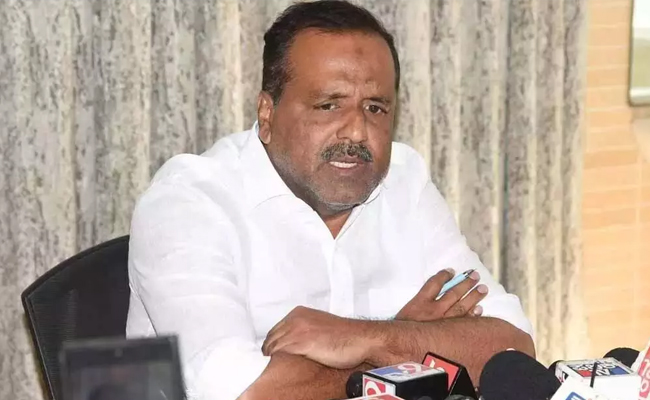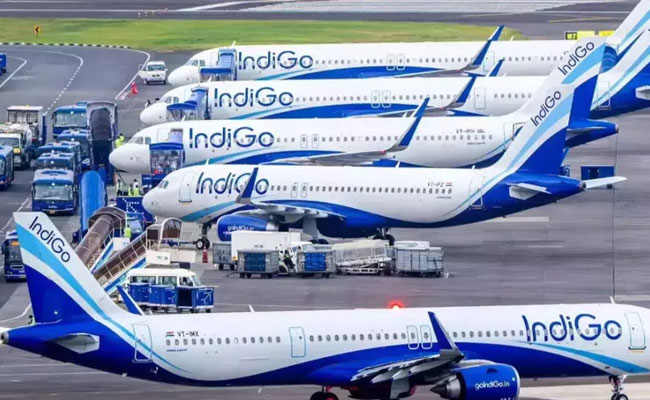Riyadh, Oct 24: Saudi Arabia's crown prince Wednesday denounced the murder of journalist Jamal Khashoggi and vowed justice would prevail, without addressing US accusations of a botched cover-up over the killing by the Gulf kingdom.
After phoning Turkish President Recep Tayyip Erdogan to discuss the October 2 killing in the Saudi consulate in Istanbul which has triggered an international diplomatic crisis, Crown Prince Mohammed bin Salman pledged there would be "no rupture" in ties with Ankara.
"The incident was very painful for all Saudis, it's a repulsive incident and no one can justify it," Prince Mohammed bin Salman said in his first comments since the journalist's murder.
"Those responsible will be held accountable... in the end justice will prevail," the heir apparent to the Saudi throne told a major investment forum in Riyadh, speaking in Arabic in his first public comments on the scandal.
Three weeks since Khashoggi, a Saudi citizen living in self-imposed exile, disappeared after walking into the consulate to get some marriage documents the crisis shows no signs of abating.
Washington moved late Tuesday to revoke the visas of a number of Saudis even though the two countries have long been allies, with Britain following suit on Wednesday.
Saudi leaders have denied involvement in Khashoggi's murder, pushing responsibility down the chain of command.
But Turkey has been leading their own investigation and Erdogan said the killing was meticulously planned, calling for 18 Saudis who have been detained by Saudi authorities to be tried in Istanbul.
Erdogan spoke with Prince Mohammed in their first telephone conversation since the killing, a Turkish presidential source said.
The two discussed "the issue of joint efforts and the steps that need to be taken in order to shed light on the Jamal Khashoggi murder in all its aspects," the source added.
Speaking at the investment forum, Prince Mohammed said: "Many are trying to exploit the Khashoggi affair to drive a wedge between Saudi Arabia and Turkey".
"But they will not succeed as long as there is a king named Salman and a crown prince named Mohammed bin Salman." Since becoming heir apparent last year, Prince Mohammed has won plaudits for reforms including to end a decades-long ban on women drivers.
But his image has been tarnished by Khashoggi's murder despite repeated denials he had any involvement. And Riyadh's changing narrative has triggered deep scepticism abroad.
US President Donald Trump said the Saudis had a "very bad original concept" in killing the 59-year-old Saudi insider-turned-critic.
"It was carried out poorly and the cover-up was one of the worst in the history of cover-ups," Trump said.
Trump for the first time also appeared to indicate Prince Mohammed may have had a role in the Khashoggi case, telling the Wall Street Journal: "Well, the prince is running things over there more... so if anybody were going to be, it would be him."
The conference, nicknamed "Davos in the desert" aimed at drumming up funds to help Riyadh diversify its oil-reliant economy, has been overshadowed by the outcry over Khashoggi's murder with an array of big names pulling out of the event.
Faced with mounting calls for tough measures by US lawmakers across the political spectrum, the State Department said it had identified 21 Saudis whose visas would either be revoked or who would be ineligible for future visas.
"We are making very clear that the United States does not tolerate this kind of action to silence Mr Khashoggi, a journalist, through violence," US Secretary of State Mike Pompeo said.
British Prime Minister Teresa May said Britain was "taking action against all suspects to prevent them entering the UK. If these individuals currently have visas, those visas will be revoked today".
France also weighed in, saying it would take "punitive measures" if Saudi Arabia was "proven" to be behind the murder.
Turkish pro-government media reported Wednesday that Turkish intelligence had shared "all the evidence" with the CIA gathered from its investigation into the killing of the Washington Post columnist.
The evidence included video and audio recordings from the consulate and the consul's residence and were shared with visiting CIA chief Gina Haspel, Sabah newspaper reported.
The whereabouts of Khashoggi's corpse is still unknown.
State media in Turkey said Wednesday that Saudi authorities had denied permission to Turkish police to search a well in the consulate's garden.
Erdogan vowed Turkey would not allow the culprits to get away with their "savage murder".
"It is not over yet," he said. "We are unravelling, dismantling (the case) and the world is closely following."
Let the Truth be known. If you read VB and like VB, please be a VB Supporter and Help us deliver the Truth to one and all.
Mangaluru (PTI): A high-level committee constituted by the Karnataka government to study the framework adopted by Andhra Pradesh for recognising Urdu as a second official language has submitted its report, backing the state’s move to accord similar status to Tulu.
The six-member panel, headed by K M Gayatri, former Director of the Kannada and Culture Department, examined the procedures followed by the Andhra Pradesh government before granting second official language status to Urdu, officials said on Wednesday.
The committee undertook a field visit to the Andhra Pradesh Secretariat on January 19 and 20 and held consultations with senior officials to understand the legal provisions, administrative mechanisms, and implementation benchmarks involved, they said.
The panel also included Tharanatha Gatti Kapikad, president of the Karnataka Tulu Sahitya Academy, in an advisory capacity.
The report, along with a detailed note outlining Tulu’s historical, linguistic, and cultural significance, was submitted to J Manjunath, Secretary, Kannada and Culture Department, at Vikas Soudha here.
According to official sources, the study was aimed at gathering inputs to help Karnataka frame criteria and procedural guidelines if it decides to grant second official language status to Tulu.
Senior officials present at the submission included B S Manjunath Swami, Director of the Kannada and Culture Department; representatives of the Law Department and the Personnel and Administrative Reforms Department; and office-bearers of various state academies.
Tulu is predominantly spoken in the coastal districts of Dakshina Kannada and Udupi, and in parts of Kasaragod in neighbouring Kerala.
The demand to accord it second official language status in Karnataka has been raised by cultural organisations for several years.





